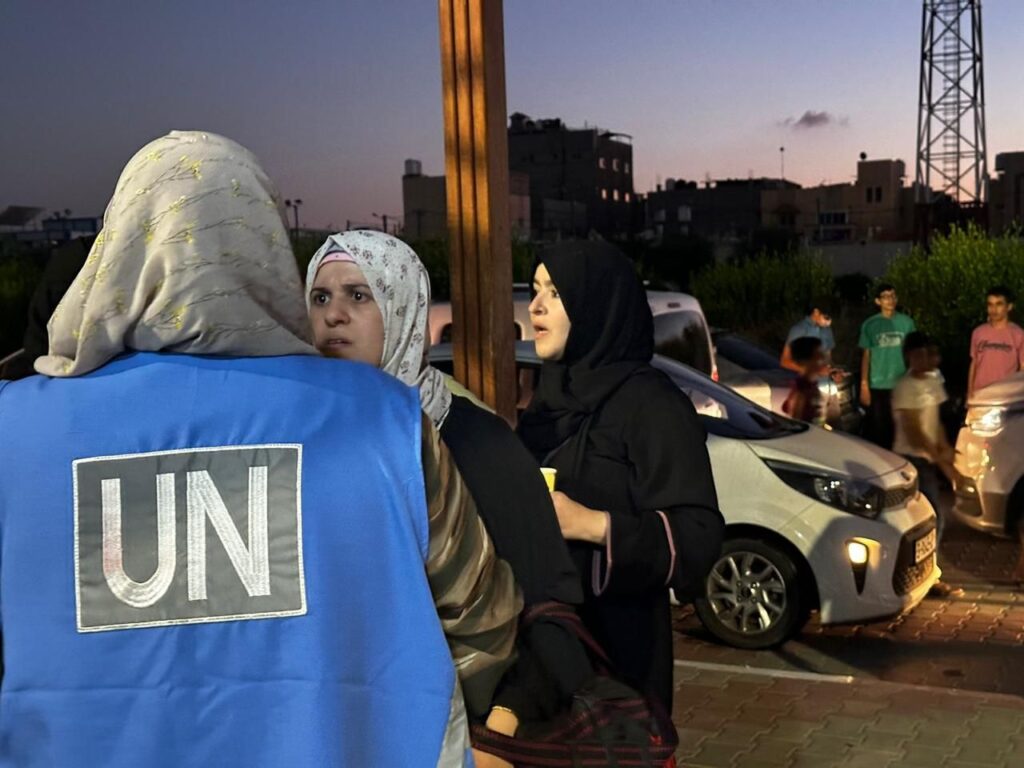
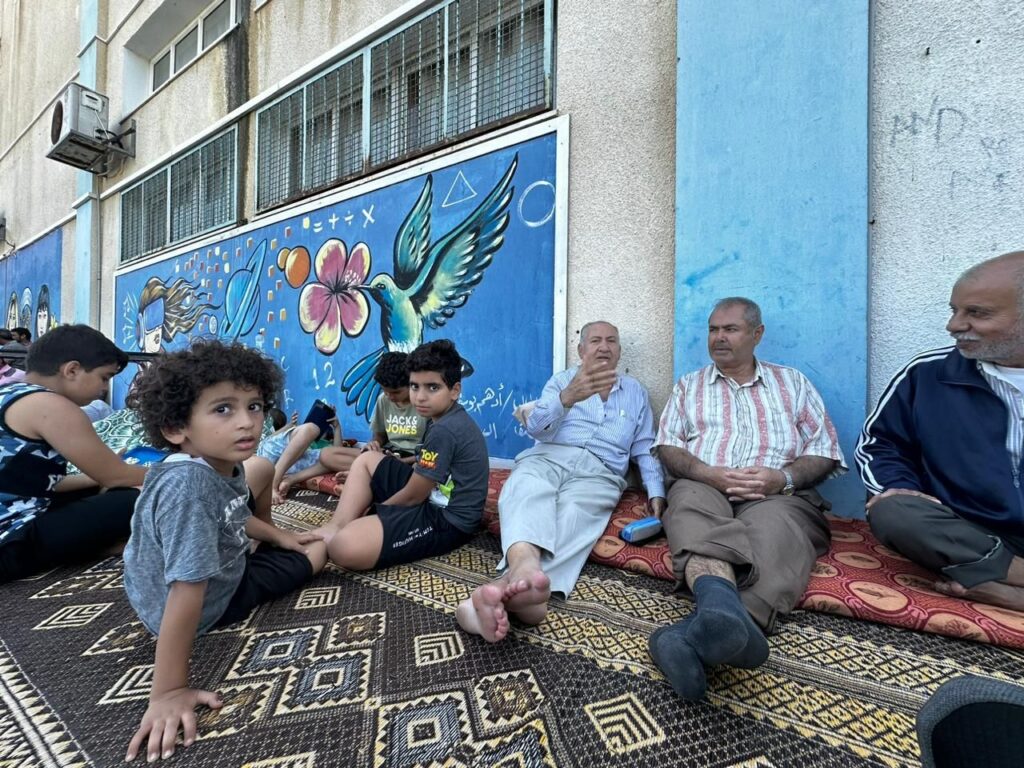
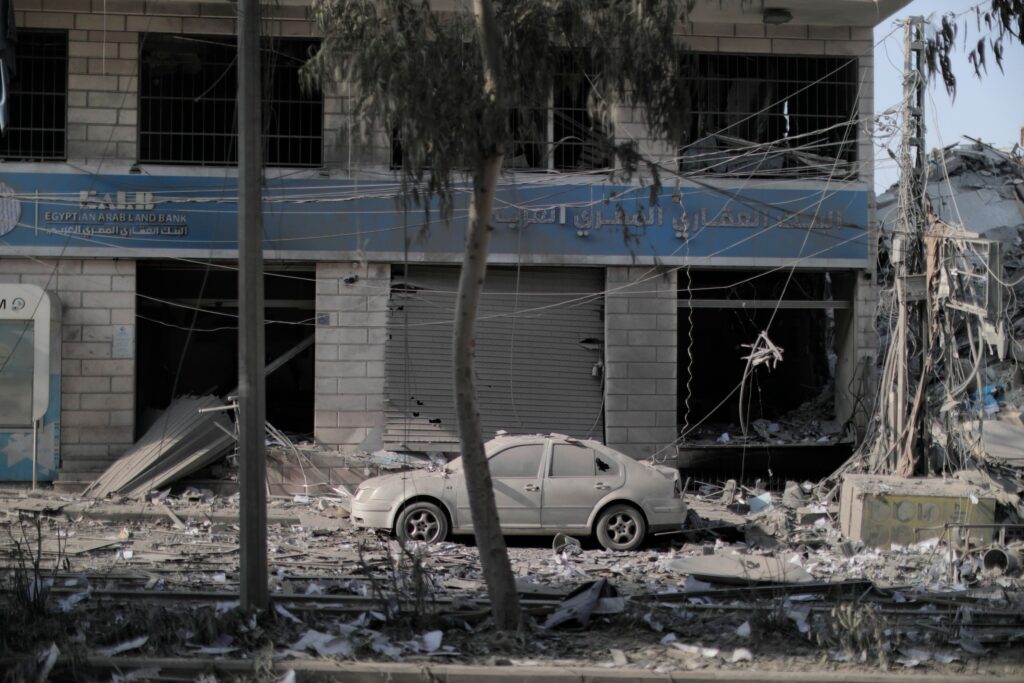



DUBAI: A Japanese citizen working for the UN Relief and Works Agency for Palestine Refugees in the Near East has described Gaza as a “real, living hell,” as Israel continues its bombardment and aid blockade of the area.
Moe Mashiko, 38, works to support the UN’s shelter-management projects, and is currently 19 weeks pregnant. She has not been able to leave the area because of the conflict.
“Airstrikes continue day and night, we are unable to sleep at night and our supplies of water, electricity and food are becoming scarcer each day,” she explained.
According to Mashiko, even UN staff members have been surviving with emergency food rations for the past few days.
“Since the war began, I have spent six days in the basement of an UNRWA facility in Gaza,” she said in recordings provided by the UNRWA to Arab News Japan. “However, since Oct. 13, I evacuated to another facility in the southern part of Gaza.”
Last Friday, Israel ordered all civilians in the northern part of Gaza, where 1.1 million residents live, to evacuate to the south ahead of a feared ground offensive.
Thousands fled to the south as a UN spokesperson said it considers the move “impossible to take place without devastating humanitarian consequences.”
In northern Gaza, Mashiko said that almost everything has been destroyed by Israeli airstrikes. “It is difficult to find any buildings that are still standing; UN facilities are also severely damaged.”
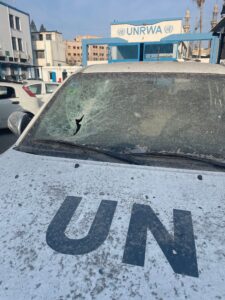
Workers and residents at hospitals and UN facilities have also been warned to evacuate by the Israeli army. However, Mashiko said these were the only places of refuge as many had already lost their homes due to the constant bombing.
“Where else can they go?” she said.
Israel is currently refusing to allow electricity, water and fuel supplies to Gaza from several countries.
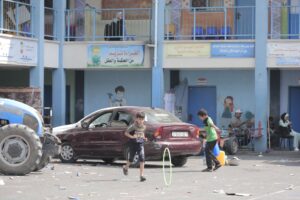
“There is a complete lack of the basic necessities of life, such as water, food, blankets and mattresses,” Mashiko said. “The United Nations’ stockpiles are no longer enough to cope with the situation.”
With not enough electricity or fuel, Mashiko said she does not think people in Gaza will make it through the winter, noting that the elderly and children are growing weaker every day.
Mashiko describes Gaza as an open-air prison, sealed off from the world due to closed borders with Israel and Egypt. She said Gazans are restricted from exiting or entering the territory.
While Israel continuously hits different targets in the strip, Gazans have no place to take shelter, she added.
“There is a chronic shortage of electricity and there are no job opportunities, so the unemployment rate is over 70 percent for new college graduates within three years, and the poverty rate is over 50 percent,” Mashiko said.
Even before the war, the medical situation was dire, as some medicines were not available in Gaza. “Even if people want to go outside for cancer treatment, they are not allowed and there are many cases where people die while waiting for several months.”
Mashiko explained that this latest violence did not “start suddenly with a surprise attack by Hamas.”
“Large-scale battles like this one occur every few years, and every year during that time, Israeli airstrikes kill thousands of innocent people due to conflicts between armed groups,” she said.